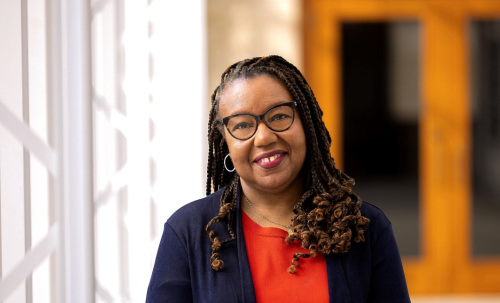“Fähigkeit”
/ˈfɛːɪçkaɪ̯t/(faisch-kite)
I was looking for a word that could tie support, empowerment and achievability. I found one in English: “enabling”. It may send the wrong message, but credits to Chat GPT for finding a German version.
What does support and empowerment look like? Is it achievable and at what cost, a cost to who? This question lingered in my mind when me and a few students had lunch with Vernese Edghill-Walden, Class of 1987.
Short answer: It depends! I could stop here, but you need the tea!
Context: It is Black History Month. This lunch happened a few days after the BSU (Black Student Union) gave their list of demands to BSG (Bucknell Student Government). Words and intense sentiments were exchanged, a protest, if you will. It gave space for a few student organizations, especially the BSU to express their concerns, which was a continuous lack of support in the campus. It also put the newly elected diversity and inclusion team in the hot seat. At the time the E-board(executive board) of the BSU was working on meeting with several administrators as well as the faculty of diversity and inclusion. They expressed how much they, other black students and minority groups have been fighting, but barely heard. There was a clear disconnect between the students and the administration.
Edghill-Walden shared about her time in Bucknell and especially activism in the 1980s, and how it brought about the Multicultural student services, and the whole diversity and inclusion team, as we know it today, which was surprising and inspiring. When asked, she also expressed that there was a disconnect between student, faculty and administration in this way. She seeks to bridge the gap as the Inaugural Vice President of Equity and Inclusive Excellence. She went round the table asking around the table what different students were involved in and highly encouraged them to start there and foster an environment where they can thrive and other people can thrive, based on their past experiences. She also emphasized the importance of just showing up.
So what exactly does support look or feel like? What does empowerment look or feel like? Can you achieve it? How? At what cost? At who’s cost?
…
~Holiness Kerandi
